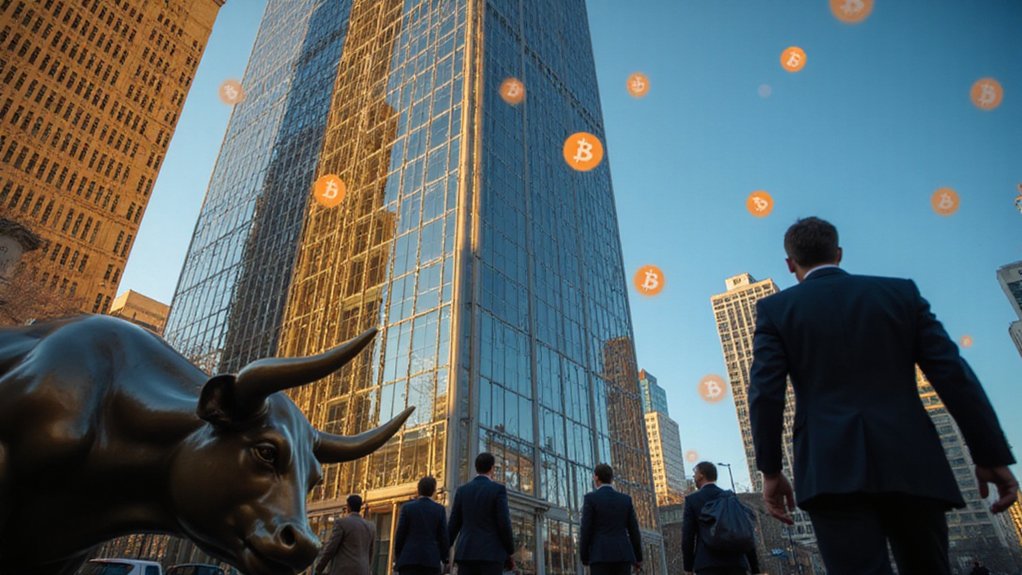The fervor of institutional Bitcoin accumulation reached a crescendo during a remarkable five-day stretch in mid-July, as twenty-one global corporations collectively deployed approximately $810 million to acquire 6,873 Bitcoin—a spending spree that coincided with the cryptocurrency’s ascent beyond $123,000 per coin.
Michael Saylor’s Strategy predictably led this corporate charge with 4,225 BTC, because apparently no Bitcoin rally feels complete without Saylor’s evangelistic participation. Japan’s Metaplanet followed with 797 BTC, while France’s Sequans added 683 BTC to the mix, creating a geographic tapestry that spans from Asia to Europe to North America—a demonstration of Bitcoin’s increasingly borderless corporate appeal.
Michael Saylor’s evangelistic Bitcoin crusade continues unabated, with corporate disciples spanning three continents joining his digital currency pilgrimage.
The buying frenzy extended far beyond these marquee names. The U.K.’s The Smarter Web Company raised $23.5 million specifically earmarked for future Bitcoin acquisitions, while Australia’s DigitalX (167 BTC) and China’s Cango (nearly 150 BTC) demonstrated that corporate FOMO transcends continental boundaries.
Even GameStop managed a $512 million Bitcoin purchase, though its stock price continued its inexorable decline—a reminder that crypto strategies don’t automatically translate to equity performance. However, market sentiment has been dampened by slower-than-expected pro-crypto policies from the Trump administration, contributing to recent volatility across digital assets.
This corporate accumulation unfolds against a backdrop of extraordinary institutional momentum. Deutsche Bank analysts highlight the $35 billion in Bitcoin ETF inflows during 2024, followed by an additional $50 billion in 2025—including a staggering $1.17 billion single-day influx. The scale of traditional finance participation has contributed to Bitcoin’s improved liquidity across major exchanges.
BlackRock’s iShares Bitcoin Trust, merely eighteen months old, now commands $80 billion in assets, dwarfing many traditional investment vehicles. While Bitcoin demonstrates institutional adoption, meme cryptocurrencies like Dogecoin continue to rely heavily on social media momentum and celebrity endorsements for their market dynamics.
The July 14-19 period witnessed fifty-eight separate Bitcoin treasury announcements, with seventeen companies revealing future acquisition plans and eleven funding initiatives securing $47 million for upcoming purchases. This represents more than opportunistic speculation; it suggests a fundamental shift in corporate treasury management philosophy.
Bitcoin’s current price of $117,995 reflects this institutional validation, though the cryptocurrency remains characteristically volatile—down 0.2% in twenty-four hours despite approaching all-time highs.
The rally’s lower volatility compared to previous cycles suggests that Wall Street’s participation may be providing unexpected stability to an asset class historically defined by dramatic price swings.









